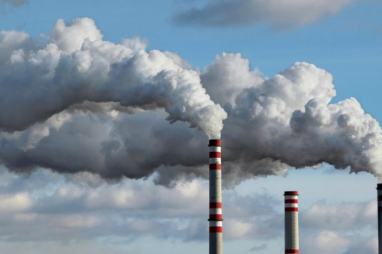- SBD - You will love The Nike Air VaporMax Run Utility if - 700 Release Date - Nike Air Zoom Pegasus 36 Cody Hudson Yellow CI1723
- adidas velcro sneaker for kids shoes boys size 1
- nike sb varsity red dunks black and blue white
- michael jordan outlet store
- AIR Polaire JORDAN8 “Aqua” DZ3356 - Кросівки jordan delta mid dc2130 006 , 001 - 127-0Shops
- on feet air jordan 1 low chicago
- Miles Morales Shameik Moore Air Jordan 1 Spider Verse
- air jordan 1 mid chicago 2020 554724 173
- air jordan 4 white tech grey black fire red ct8527 100 release date
- kids air jordan
- Home
- News and analysis
- Info hubs
- Events
- Video
- Case Studies
- About us
- Magazine
- Advertising
Produced for the industry by the Association for Consultancy and Engineering
News
Energy industry doubtful of UK hitting emissions targets

Current government energy policies are damaging the UK's chances of hitting vital targets for reducing carbon emissions. So say 80% of industry professionals interviewed by the Energy Institute (EI).
The EI's 2017 Energy Barometer report reveals that eight out of 10 of EI members surveyed believe the UK is on course to miss the crucial aim of the fifth carbon budget, which requires emissions to be cut by 57% from 1990 levels by 2030. This points to the need for the government's Clean Growth Plan to present new policy measures and greater confidence, the EI says.
The Clean Growth Plan is the long-awaited government strategy for meeting the UK's carbon reduction targets. In April this year, the former climate change minister Nick Hurd told a Business, Energy and Industrial Strategy select committee hearing that the Plan had been put into a 'holding pattern' by the snap general election. Hurd said coordinating the Plan across multiple government departments was proving to be a "fantastically complex and challenging process".
Members of the EI were questioned on issues of Brexit as well as the effects of government policies on energy investment, prices and carbon reduction. Withdrawal from the EU is seen as a substantive threat to the UK's energy system. Brexit negotiations must not be allowed to undermine UK energy policy, the report says.
EI's vice president, former National Grid CEO, Steve Holliday, said: “The stakes are high for the UK’s energy economy. The potential is there for significant industrial benefit and reduction of emissions at least cost to consumers and taxpayers, but sound policy making should not be drowned out by Brexit or other political upheavals.
“Energy professionals’ advice could not be stronger on putting energy efficiency at the heart of the Government’s strategy. The benefits of energy efficiency stack up for emissions reduction, energy security, industrial growth and affordability.”
The 2017 Energy Barometer: On Brexit…
- The UK’s withdrawal from the EU is seen as a material concern for the energy system; Brexit negotiations must not undermine effective energy policy in the UK. Energy professionals urge negotiators to seek means of continued close cooperation with the EU single energy market.
- Concern is acute in relation to any restriction on immigration affecting workforce availability. If freedom of movement is curtailed, government must pursue additional apprenticeship and training measures to meet the shortfall.
- The majority of respondents want the government to transfer key EU energy and climate change directives into UK law – including on renewables, energy performance of buildings, vehicle emissions and civil nuclear. Opinion is more divided on whether the EU Emission Trading System or state aid rules should be retained.
On policies, investment and prices…
- Energy efficiency is considered the top priority measure to lower emissions at least cost, and 64% of respondents rate it as key to seizing the economic advantages of the shift to low carbon, echoing the wider engineering profession’s response to the BEIS Industrial Strategy green paper.
- Energy policy needs strengthening. More than half of EI members think policy has had no effect or a negative effect over the past 12 months. An exception to this is the support of new nuclear power, reflecting the go-ahead for the Hinkley Point C power station.
- Members expect to see moderate price rises in all areas of the energy market during 2017, including in retail gas and electricity. Asked their views about price cap proposals outlined in several General Election manifestos, members urged caution. While affordability could be impacted positively, this is counterbalanced by greater, negative impacts on investment, decarbonisation and competition. More than half of respondents felt that a price cap should not be introduced.
On the low carbon transition…
- Energy professionals continue to be sceptical, on the basis of current policies, of the likelihood of the UK meeting its legally binding emissions reduction targets. Eight out of ten respondents believe the UK will fall short of meeting the fifth carbon budget. This points to the need for the government’s Clean Growth Plan to deliver new policy instruments and greater confidence.
- The EI separately asked members about President Trump’s decision to pull the US out of the Paris Agreement on climate change. While almost a quarter believe this represents a significant threat to achieving the 2C target, the majority of respondents believe it is surmountable if US action continues at state level and federal support is reinstated under a future administration.
- The 2017 Energy Barometer also looks in depth at the future energy system, in particular the need for policy to deliver a flexible, decentralised, integrated system and to reduce emissions from heat through energy efficiency improvements as well as developing low carbon heat sources.





